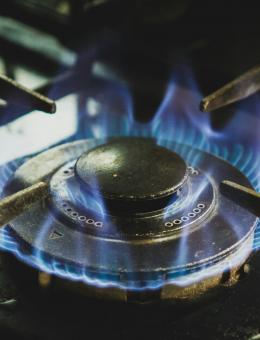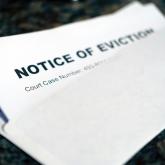
AS AUTUMN ARRIVES, THOUGHTS TURN TO GAS SAFETY
Published 13 September 2024
Autumn: season of mists and mellow fruitfulness. But also, as the mercury starts to dip, the time of year when we think about that moment when we will once again have to fire up the central heating, writes Catherine Hunt.
Even though energy prices are lower now than they were at the height of the crisis two years ago, the recent announcement that the energy price cap is to rise by £149 for an average dwelling from 1st October may mean that many of us will be putting this annual autumnal moment off as long as we can.
But that fact shouldn’t mean that landlords push all thoughts of boilers and central heating to the back of their minds. Aside from financial considerations, there is another, even more important thing to think about as we disturb our boilers from their summer slumbers, and that is gas safety.
It is no accident that Gas Safety Week takes place every September (it is this week), to remind ourselves of the need to ensure we protect everybody from the invisible, odourless yet deadly menace that is carbon monoxide.
Landlords have a particular responsibility to their tenants when it comes to gas safety. First of all they must ensure that all gas equipment in the property is installed and maintained by a Gas Safe registered engineer. They must also arrange for an annual gas safety check on each appliance and each flue, also by a Gas Safe registered engineer.
Records must be kept of these installations and safety checks, and they must be provided to tenants no later than 28 days after the check, or at the start of each tenancy. Failure to do this means, apart from anything else, that landlords will not be able to issue a Section 21 eviction notice.
In addition to this, landlords must ensure a functioning carbon monoxide alarm is provided in any room used as living accommodation which contains a ‘fixed combustion appliance’ (excluding gas cookers). They are also legally obliged to ensure that smoke alarms and carbon monoxide alarms are repaired or replaced should the alarms be found to be faulty once they are advised by the tenant.
Failure to comply with gas safety measures carries significant consequences for landlords, with substantial potential fines. Added to which, no landlord wants to put the safety of their tenants in danger.
No-one likes red tape, but regulations such as these are there for a very good reason. As the ‘whoomph’ sound of boilers firing up the central heating is heard across Norfolk this autumn, let’s ensure that a warm, comfortable home is the only result, rather than a wholly avoidable tragedy.
Share this story
Arnolds Keys Blog

WEED MANAGEMENT THROWN INTO FOCUS
7 September 2024
The NFU has recently reminded farmers about the importance of remaining vigilant against the spread of ragwort, but in fact there is a wider issue concerning weed management which goes... Read more >

SURVEY SHOWS PEOPLE BUY HOMES WITH THEIR HEARTS, NOT THEIR HEADS
6 September 2024
You would think that when people are thinking about the biggest purchase they will ever make in their lives, it would be rational considerations which would come first, writes Sue Hall. Read more >
BIG OPPORTUNITIES FOR INVESTMENT IN THE STUDENT ACCOMMODATION SECTOR
21 August 2024
Whilst the traditional, mainstream property investment categories such as retail, industrial/warehousing, offices and residential buy-to-let receive most of the focus when investors are planning where to put their cash, a... Read more >

RENTERS RIGHTS BILL – WHAT IT COULD MEAN FOR LANDLORDS & TENANTS
9 August 2024
We now have a few more details of the proposed Renters Rights Bill, and given what was in the Labour manifesto, we shouldn’t be surprised that the pendulum appears to... Read more >
